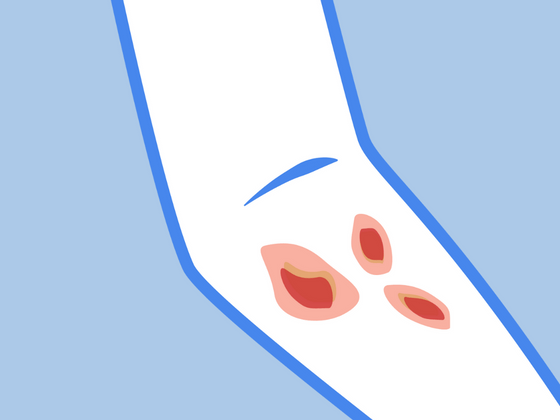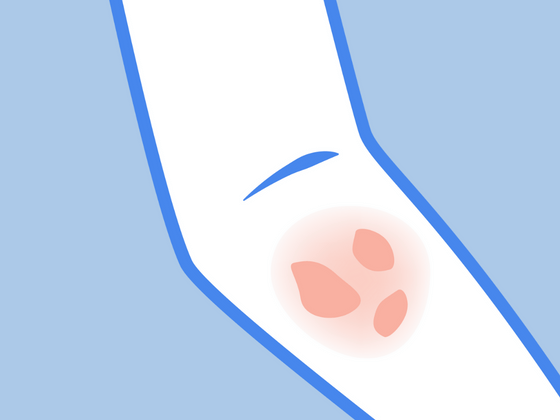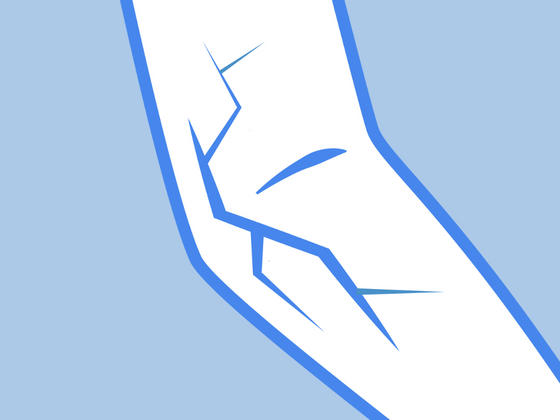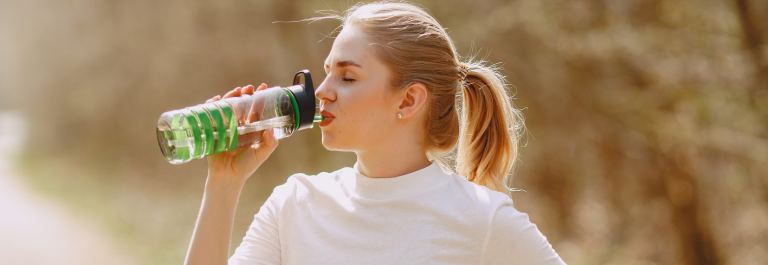Eczema is a chronic skin condition that affects many people worldwide. Those with eczema know how challenging it can be to manage the dryness, itching, and flare-ups that often accompany this condition. You might have heard drinking water can improve your skin's condition, but is that true? Does drinking water help eczema, and if so, how?
In this blog, we're going to explore the relationship between water and eczema, including:
-
How drinking water can support skin hydration and barrier function.
-
The impact of water quality and hardness on eczema symptoms.
-
The role of water in improving atopic eczema and preventing flare-ups.
Read on to discover the truth about drinking water and its role in managing eczema symptoms so that you can enjoy healthy skin.
How Drinking Water Supports Skin Hydration
Dry skin is one of the biggest challenges when it comes to eczema. The skin barrier, which helps lock moisture in and keep irritants out, becomes weakened in people with eczema. This can lead to dry, cracked, and irritated skin. So, the more hydrated your body is, the better equipped your skin is to retain moisture and stay healthy.
Drinking water helps keep your skin hydrated from the inside, which supports the skin's natural moisture barrier. When your skin is well-hydrated, it can reduce dryness and minimize the itchiness that comes with eczema. While drinking water alone won't cure eczema, it plays a crucial role in keeping your skin barrier strong and preventing further dryness and irritation.
The Link Between Water Quality and Atopic Eczema Symptoms
It's not just about how much water you drink, but also the quality of the water. Hard water, which is high in minerals like calcium and magnesium, can dry out your skin and worsen eczema symptoms. In fact, studies show that high mineral content in water (with a PPM level higher than 200) can contribute to eczema flare-ups, especially when it comes into contact with the skin.
If you live in an area with water hardness, you may want to consider using a water softener or filter. Soft water is gentler on the skin and may help improve eczema symptoms by reducing the dryness and irritation caused by harsh minerals. You can also use a water filter to remove chlorine and other harsh chemicals from your tap water, which can further protect your skin.
Water Helps Support Your Immune System
Water is important for overall health, including your immune system. Proper hydration can help your body cope with environmental triggers like allergens or irritants that may make eczema worse. When your body is well-hydrated, it can better manage these triggers and keep eczema symptoms at bay.
The Importance of Staying Hydrated for Atopic Dermatitis
Environmental factors like allergens, dry air, or stress often trigger eczema flare-ups. But did you know that dehydration can also make your eczema worse? When your skin lacks hydration, it becomes more prone to irritation and inflammation, which can lead to flare-ups.
Drinking plenty of water helps maintain skin hydration and keeps the skin barrier function intact. It's especially important for those with atopic eczema, as staying hydrated can help reduce the frequency and severity of flare-ups. Make sure to drink enough water throughout the day to keep your skin healthy and your eczema symptoms under control.
Top Tips for Keeping Your Skin Hydrated
In addition to drinking water, here are some tips to help keep your skin hydrated and manage eczema:
Moisturize Regularly
Apply a rich moisturizer to your skin after bathing to lock in hydration. Look for products designed for sensitive, eczema-prone skin, like our Nourish + Hydrate Manuka Balm. This natural balm is non-greasy, deeply moisturizing, and helps prevent dryness with long-lasting hydration. Enriched with UMF®-certified Manuka honey, organic virgin cold pressed sunflower oil, organic virgin cold pressed camellia seed oil, lactobacillus ferment, and organic beeswax, this gentle formula strengthens the skin barrier and supports a healthy microbiome, keeping skin soft, soothed, and nourished without irritation or stinging.
Use Gentle, Hydrating Products
Avoid harsh soaps and skincare products that can strip your skin of moisture. Opt for gentle, eczema-friendly cleansers and moisturizers that are free from fragrances and artificial chemicals like this Soap for Eczema with Chinese Herbs. Made with Chinese herbs, it nourishes and hydrates without stripping the skin’s natural oils, making it ideal for dry, sensitive skin, eczema, and psoriasis, and can even be used as a gentle shampoo for dandruff and cradle cap.
Avoid Long, Hot Showers
Hot water can dry out your skin, leading to itchy skin. That's why we recommend trying to take shorter, lukewarm showers. As always, follow up with a moisturizing product to help restore your skin's moisture.
Stay Hydrated
Aim for at least eight glasses of water a day. If you're feeling thirsty, drink up! Keeping your body hydrated is just as important as moisturizing the skin.
Treat Dry Skin Today
While drinking plenty of water won't cure eczema on its own, it can certainly help keep dry skin at bay, prevent flare-ups, and contribute to healthy skin. Combine adequate water intake with a gentle skincare routine, and you'll be well on your way to managing eczema more effectively.










